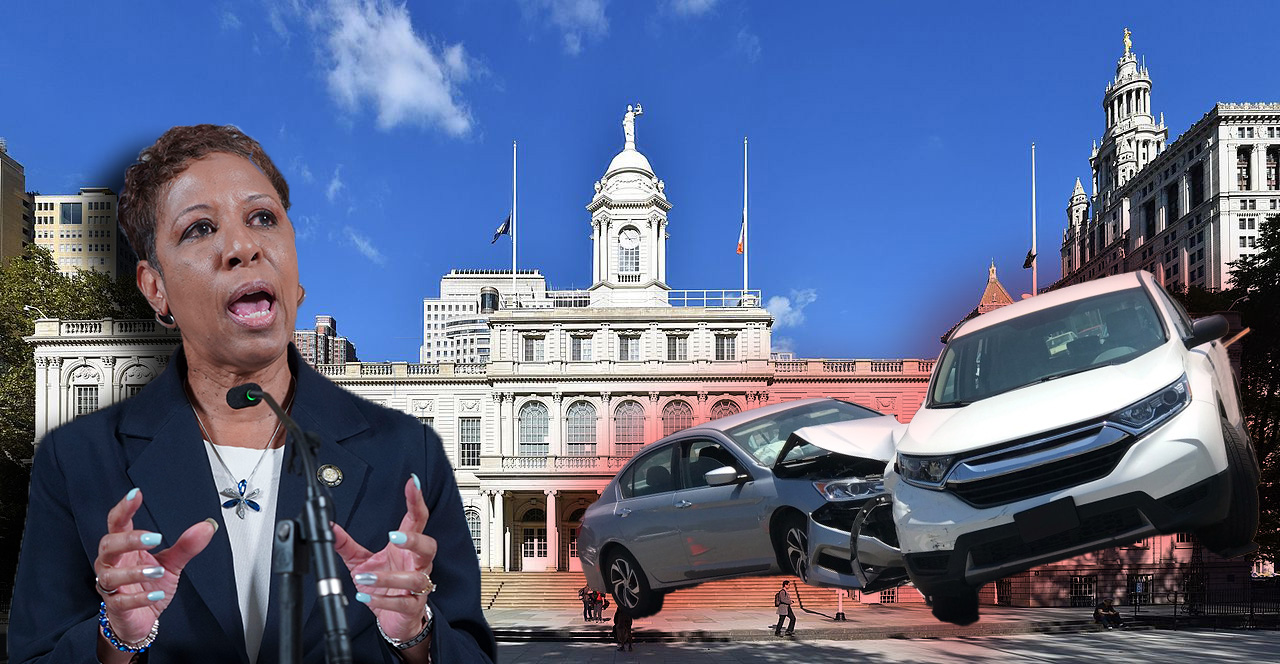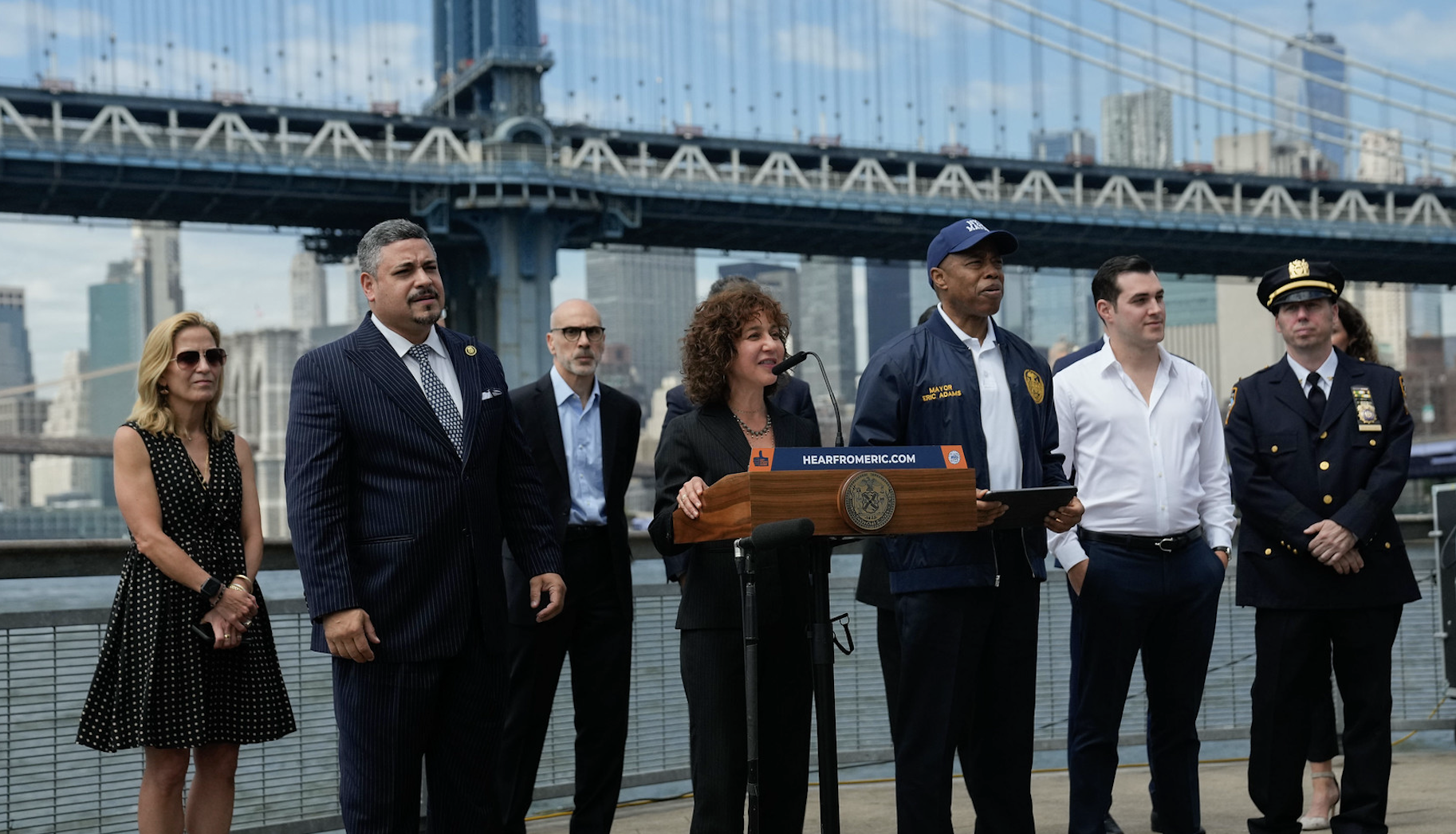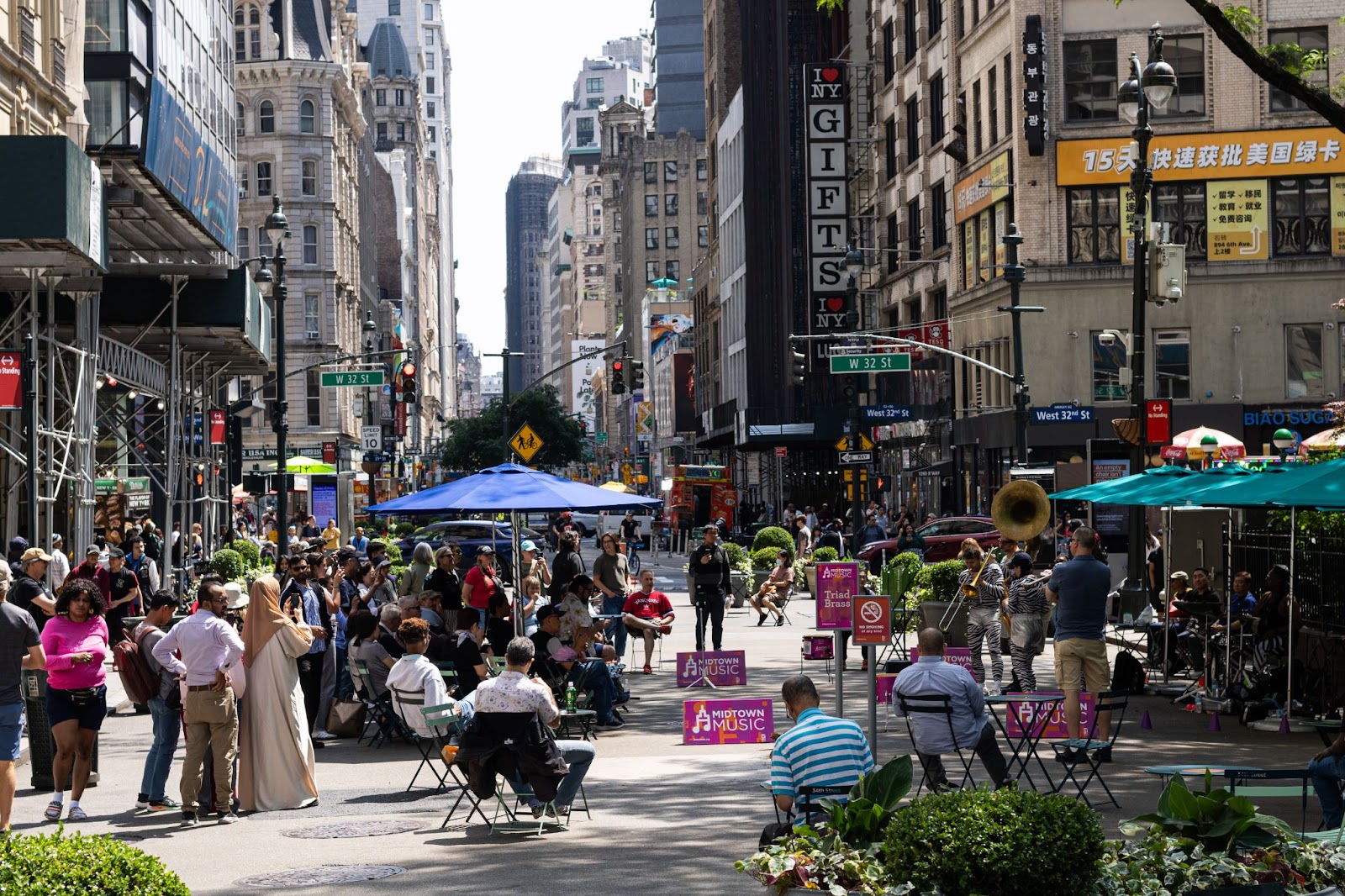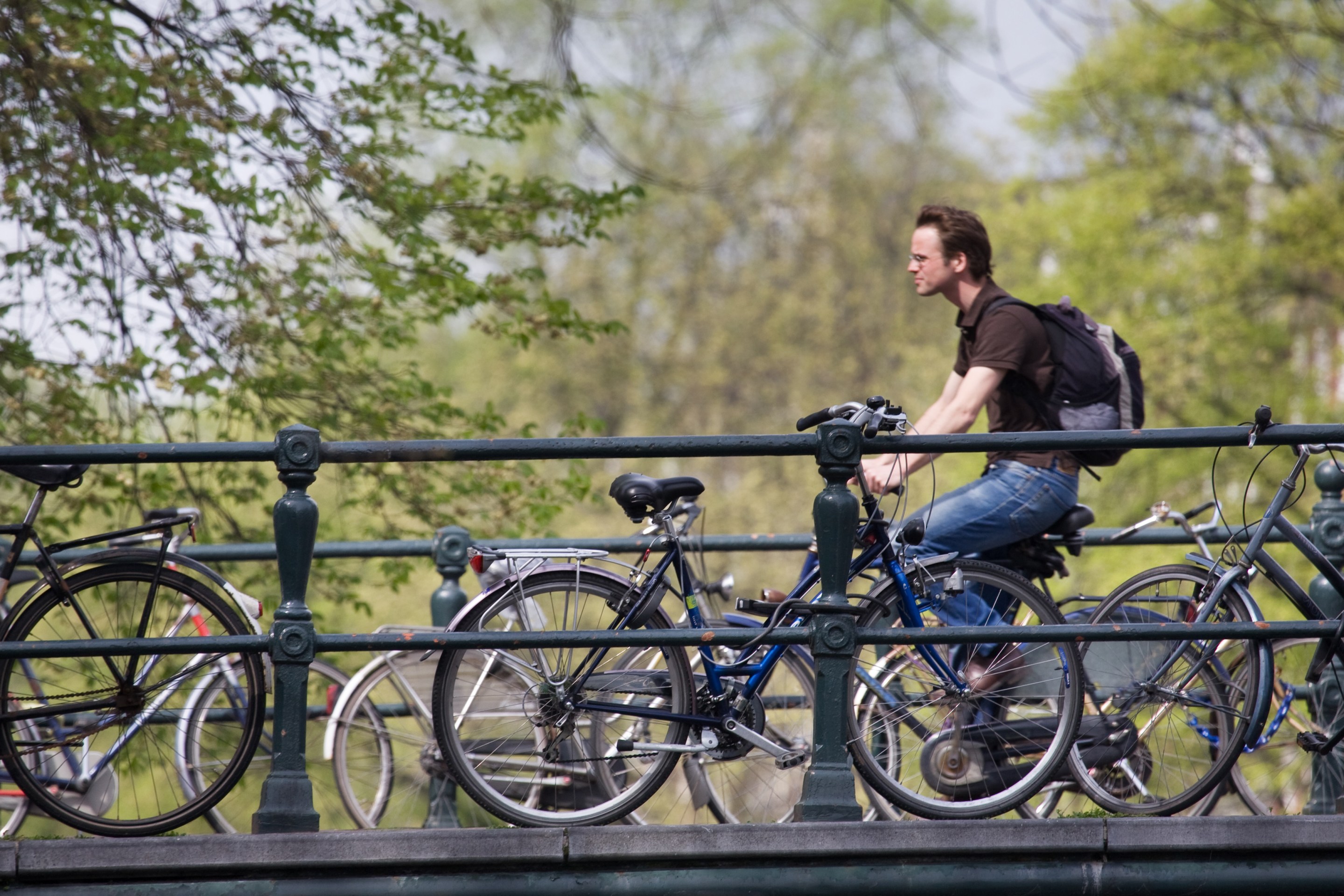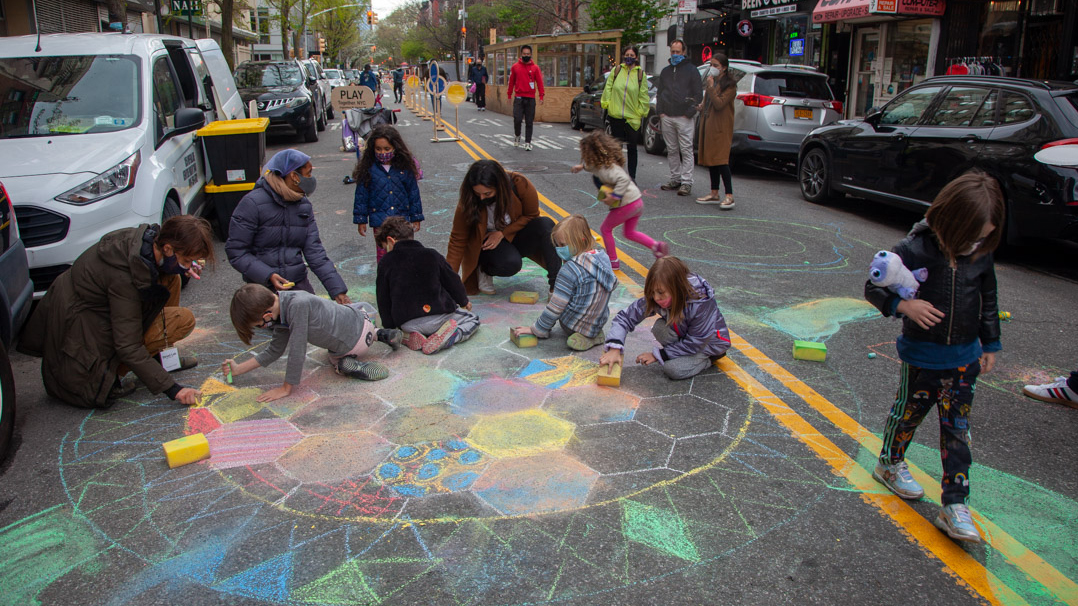Last year, Hilda Cohen, Ali Loxton and their neighbors picked up the pieces of a torpedoed bike lane proposal for Lafayette Avenue, showing DOT and Brooklyn Community Board 2 the community's broad support for safer cycling on the busy street. After 1,400 signatures and countless hours of work, Lafayette Avenue from Fulton Street to Classon Avenue was recently striped with a shared lane for bicyclists.
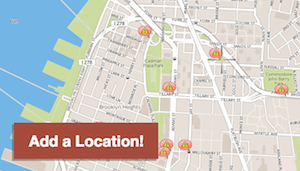
Following that victory, Cohen is aiming for safer streets in the rest of the borough. She’s launched a new initiative, Make Brooklyn Safer, and is asking all Brooklynites to help identify dangerous intersections on a map -- a project called KROSS/walk, for Kids Riding on Safe Streets.
A year ago, bicycle advocacy was new for Cohen. "I had never done anything like it before," she said. "I just got sick of biking with my kids and getting run off the road."
Although Lafayette Avenue is now improved, Cohen and her children travel on more than just one street. "I am amazed at how fabulous some of the bike infrastructure is in Brooklyn," Cohen said. "But then it just kind of ends, or it feels like something was forgotten."
"My daughter is 10 and she's going to go into middle school," she said. "My judgement of a good bike lane is: will I let my kids ride in it?”
Since beginning the Make Lafayette Safer campaign, Cohen has reached out to other parents. "You ask parents in Brooklyn," she said, and their top concern is "not abduction, it's traffic." With children in tow, people gain a new perspective, Cohen said.
Cohen doesn't want her efforts to just be about bicycling. "If you don't bike with your kids, you probably walk with your kids," she said. "Anybody who moves a little bit slower has a very different perception of the street."
Cohen wanted to keep the momentum going following her success with her own neighborhood street. When working on Make Lafayette Safer, she discovered that many city agencies actually do want to know what citizens are thinking. "They do want to hear from the public -- not just what the community board says we're saying, but what people are saying," she said.
"What I learned through Make Lafayette Safer is that you have to have documentation," she said. Existing tools for documenting unsafe streets just weren't cutting it. "One of the things I felt about 311 is that you were doing it in a vacuum," Cohen said. "I always felt like, 'What are they going to do with this? Am I going to hear anything?'"
Over the summer, Cohen applied for Make Brooklyn Safer to be a demonstration project of Shareabouts, a mapping tool of OpenPlans (the parent organization of Streetsblog). An earlier version of the Shareabouts software was used to solicit suggestions for bike-share station locations in New York. "We wanted to showcase the tool," said Naama Lissar of OpenPlans. "It's not just for bike-share."
Of 21 applicants, five projects -- ranging from bicycle-transit connections in the Philadelphia area to a beautification project in Jackson Heights -- were selected to use the mapping tool for six months. Make Brooklyn Safer was also selected to participate. "We selected all five projects because they all have the potential to demonstrate the benefits of crowdsourcing in local planning," said Lissar.
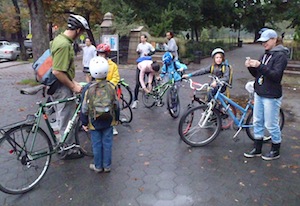
"I'm not a corporation, I'm not a big advocacy group, I'm not DOT," Cohen said. "I'm trying to be a squeaky wheel with a solution...My opinion matters just as much as everybody else's." Cohen, who has been pleased with the response so far, wants to get as many of those opinions on the map as possible. Lots of people don't want to join an organization or go to meetings, Cohen said, "but they have something to say."
Interestingly, about one in five locations on the map marks not a dangerous location, but a safe one. "Someone marked a really good spot to cross Atlantic Avenue," Cohen said. "There are more positives than I thought there would be, which is good."
Eventually, Cohen hopes to use the map to identify particular locations that residents say need safety improvements and bring that information to city agencies and community boards. "There's also the thought of taking it to the community precinct meeting," she said. "There are a lot of ideas; I just haven't been able to act on them all."
In the meantime, Cohen keeps riding bikes with her kids and other families. Her children attend P.S. 261, where parents have started a "bike train" to school, departing from Fort Greene Park every Wednesday morning in October. Five families with children in the school's pre-K class have cargo bikes, Cohen said. "It's a big biking school."
"I think back to how I used to get to school and to my friends' houses," she said. "I simply want that kind of freedom for my kids, as well."
